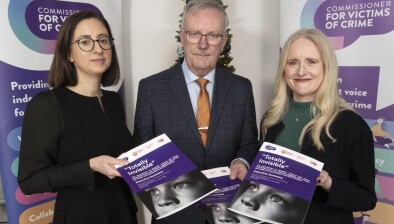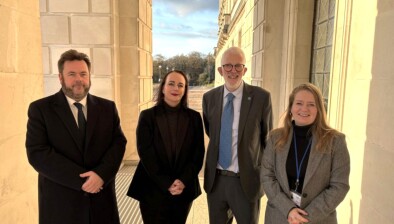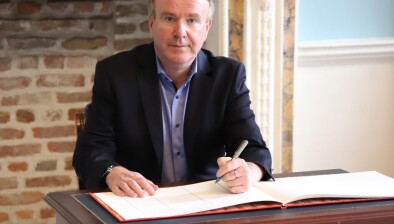Children’s rights in Northern Ireland ‘have regressed’

Fergal McFerran
The rights of children in Northern Ireland have regressed, according to three reports produced by the Children’s Law Centre and submitted to the UN Committee on the Rights of the Child.
The reports, produced in consultation with a wide range of NGOs and over 1,000 children, highlight significant gaps in children’s rights and the impact this is having on children and young people in Northern Ireland.
Previous recommendations made by the UNCRC, such as raising the age of criminal responsibility and removing the defence of reasonable punishment, remain unaddressed, while the number and complexity of issues facing children and young people have dramatically increased over the last number of years.
All three reports can be found on the Children’s Law Centre website.
Fergal McFerran, policy and public affairs manager at the Children’s Law Centre, said: “We’re very concerned about the current situation for children and young people. These reports have been informed by a wide range of expertise within the NGO sector in Northern Ireland. They also give a voice to over 1,000 children and young people here.
“We are able to give a very good indication of where we are in relation to children’s rights and the issues facing children, but I’m afraid it’s very concerning reading.
“A number of the major recommendations from previous concluding observations remain unimplemented. These include raising the age of criminal responsibility, removing the defence of reasonable punishment, the failure to enact a Bill of Rights for Northern Ireland, and the introduction of age discrimination legislation to protect children. These are all issues raised in 2016 which have still not been addressed.
“However, the subsequent years have become even more perilous for children and young people. Since 2016 we’ve had attacks on human rights from the UK government, uncertainty around rights protected by the Good Friday Agreement, escalating pressures on public services, the impact of Covid policies on vulnerable children, and a growing failure to protect newcomer children.
“In addition, issues that did not feature in 2016 are now major concerns. These include the rising number of unaccompanied asylum-seeking children, as well as the growing numbers of newcomer children being held in unsuitable temporary accommodation. While concerns around the disproportionate numbers of children being stopped and searched remain, we now also have serious concerns around the strip searching of children and the use of ‘spit hoods’.”
He added: “We are certain that the best way to protect children and young people from the many challenges they face is to see full and swift incorporation of the UN Convention on the Rights of the Child into domestic law.
“We look forward to engaging further with the UN Committee on the Rights of the Child through the examination process, including leading a delegation of children and young people to Geneva in the new year.
“We hope to see a strong set of recommendations that ensure the UK government and local decision makers fulfil their obligations in protecting children and young people here.”









